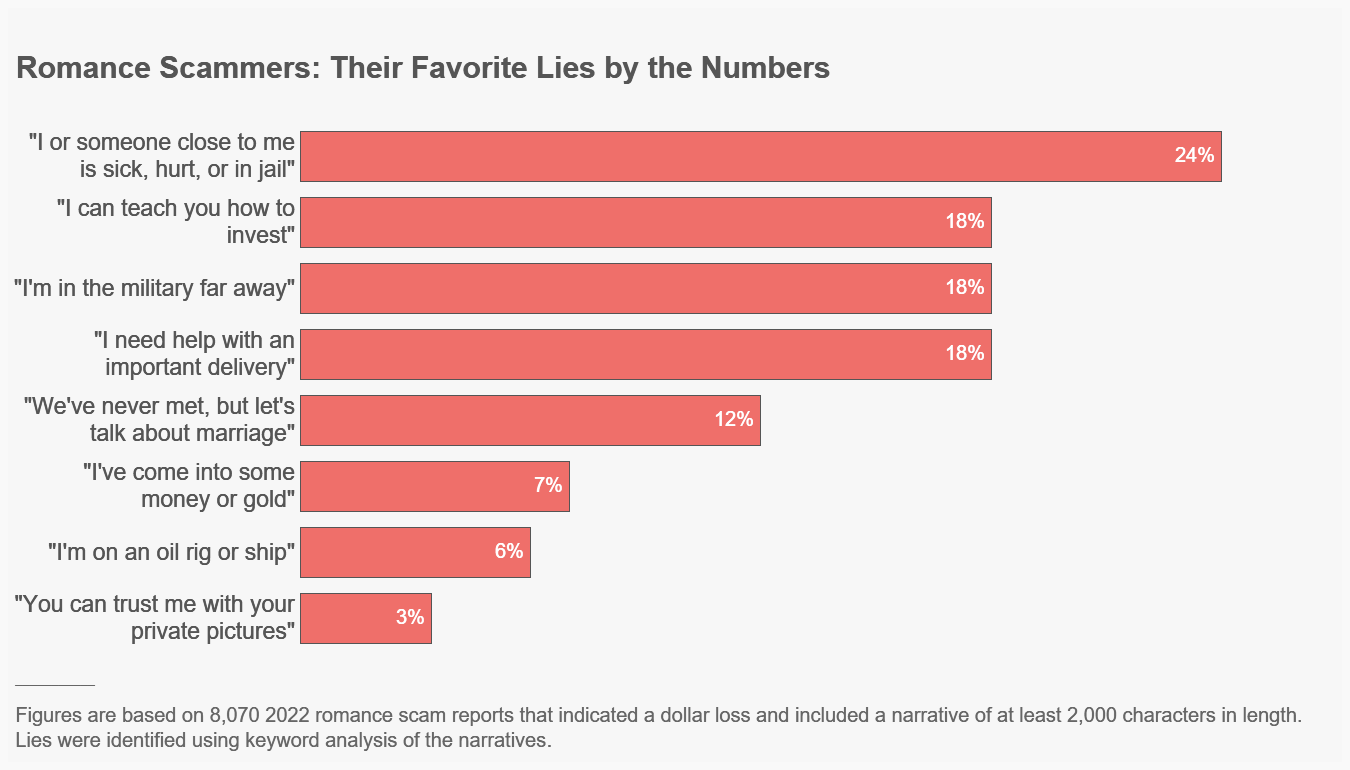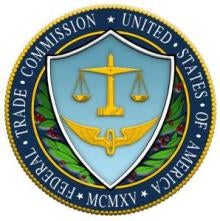New data released today by the Federal Trade Commission sheds new light on the lies that romance scammers use to take advantage of people—lies that reports to the FTC show cost nearly 70,000 consumers $1.3 billion in 2022.
Using data from the FTC’s Consumer Sentinel Network, the new data spotlight breaks down the most common lies that consumers reported being told when they were contacted by romance scammers last year.
Topping the list was scammers telling consumers that they needed money because a friend or relative was sick, hurt or in jail – a lie consumers reported hearing in nearly a quarter of reports. The next most commonly reported lie was that the scammer had great investment advice to share with their newfound romantic interest, followed closely by the lie that the scammer was in the military, or that they needed help making some sort of important delivery.
The data spotlight also highlights a growing tactic used by romance scammers: sextortion, when a romance scammer convinces a consumer to share explicit photos and then threatens to share those photos with the consumer’s social media contacts. The spotlight notes these reports have increased more than eightfold in the past three years, with consumers ages 18-29 six times more likely than older consumers to report this form of romance scam.
According to the spotlight, consumers most often report being contacted by romance scammers via social media, though they often push to move to other messaging apps. Consumers also reported losing more money by sending cryptocurrency than any other method.

The Federal Trade Commission works to promote competition and protect and educate consumers. Learn more about consumer topics at consumer.ftc.gov, or report fraud, scams, and bad business practices at ReportFraud.ftc.gov. Follow the FTC on social media, read consumer alerts and the business blog, and sign up to get the latest FTC news and alerts.




 />i
/>i

